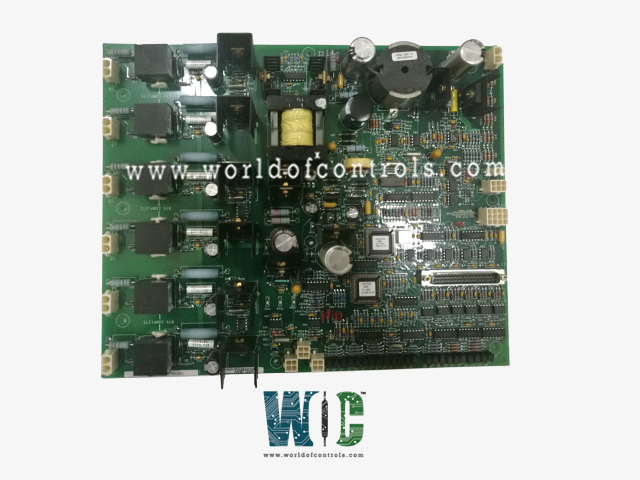
World Of Controls understands the criticality of your requirement and works towards reducing the lead time as much as possible.
IS200EGPAG1BEC - Exciter Gate Pulse Amplifier Board is available in stock which ships the same day.
IS200EGPAG1BEC - Exciter Gate Pulse Amplifier Board comes in UNUSED as well as REBUILT condition.
To avail our best deals for IS200EGPAG1BEC - Exciter Gate Pulse Amplifier Board, contact us and we will get back to you within 24 hours.
SPECIFICATIONS:
Part Number: IS200EGPAG1BEC
Manufacturer: General Electric
Series: EX2100
Product Type: Exciter Gate Pulse Amplifier Board
Operating System: QNX
Power Requirements: +5 V dc, 6 A
Number of input channels: 24
Trip Solenoid Rating: 125 V dc
Power supply voltage: 28 V dc
Operating temperature: 40 to 70�C
Size: 168 x 150 x 55 mm
Repair: 3-7 Day
Availability: In Stock
Country of Origin: United States
Manual: GEI-100461A
FUNCTIONAL DESCRIPTION:
IS200EGPAG1BEC is an Exciter Gate Pulse Amplifier Board manufactured and designed by General Electric as part of the EX2100 Series used in GE Excitation Turbine Control Systems. The Gate Pulse Amplifier Board (EGPA) operates within the EX2100 Excitation Control system, where it processes gate commands from the ESEL and manages the gate firing for up to six Silicon Controlled Rectifiers (SCRs) in the Power Bridge. It also serves as the interface for monitoring current flow, as well as airflow and temperature within the bridge. The EGPA includes an on-board dc/dc converter, powered by a nominal 125 V dc input from the EPDM, enabling SCR gating across the full range of input voltage. LED indicators provide visual feedback on the EGPA�s power status, input gate signals from the ESEL, outputs to the SCRs, current levels in the bridge, filter status, cooling fan activity, bridge temperature, and any alarms or faults.
GATE COMMAND INPUTS:
The EGPA receives six gate commands from the ESEL through a shielded, twisted-pair, multiconductor cable. These differential gate commands are optically coupled, filtered, AC-coupled, and directed to the Gate Pulse Amplifier (GPA). Each of the six SCRs has a dedicated GPA, with the EGPA providing galvanic isolation between each SCR gate.
SENSOR INPUTS:
WOC has the largest stock of OEM replacement parts for GE Excitation Turbine Control Systems. We can also repair your faulty boards and supply unused and rebuilt boards backed up with a warranty. Our team of experts is available round the clock to support your OEM needs. Our team of experts at WOC is happy to assist you with any of your automation requirements. For pricing and availability on parts and repairs, kindly contact our team by phone or email.
How does the EGPA receive gate commands?
The EGPA receives six gate commands from the ESEL via a shielded, twisted-pair, multiconductor cable. These commands are optically coupled, filtered, and sent to the Gate Pulse Amplifiers (GPAs) for each SCR.
How is bridge temperature monitored by the EGPA?
Bridge temperature can be monitored using an RTD (thermistor) sensor input or a temperature switch input. Newer exciters rely on the RTD input exclusively, while retrofitted systems with EX2100 control use the temperature switch inputs to interface with existing temperature switches. Both inputs connect to the EGPA at J13.
How does the EGPA indicate operational status?
LED indicators on the EGPA provide visual feedback on power status, gate commands from the ESEL, outputs to SCRs, current in the bridge, cooling fan operation, bridge temperature, and any alarms or fault conditions.